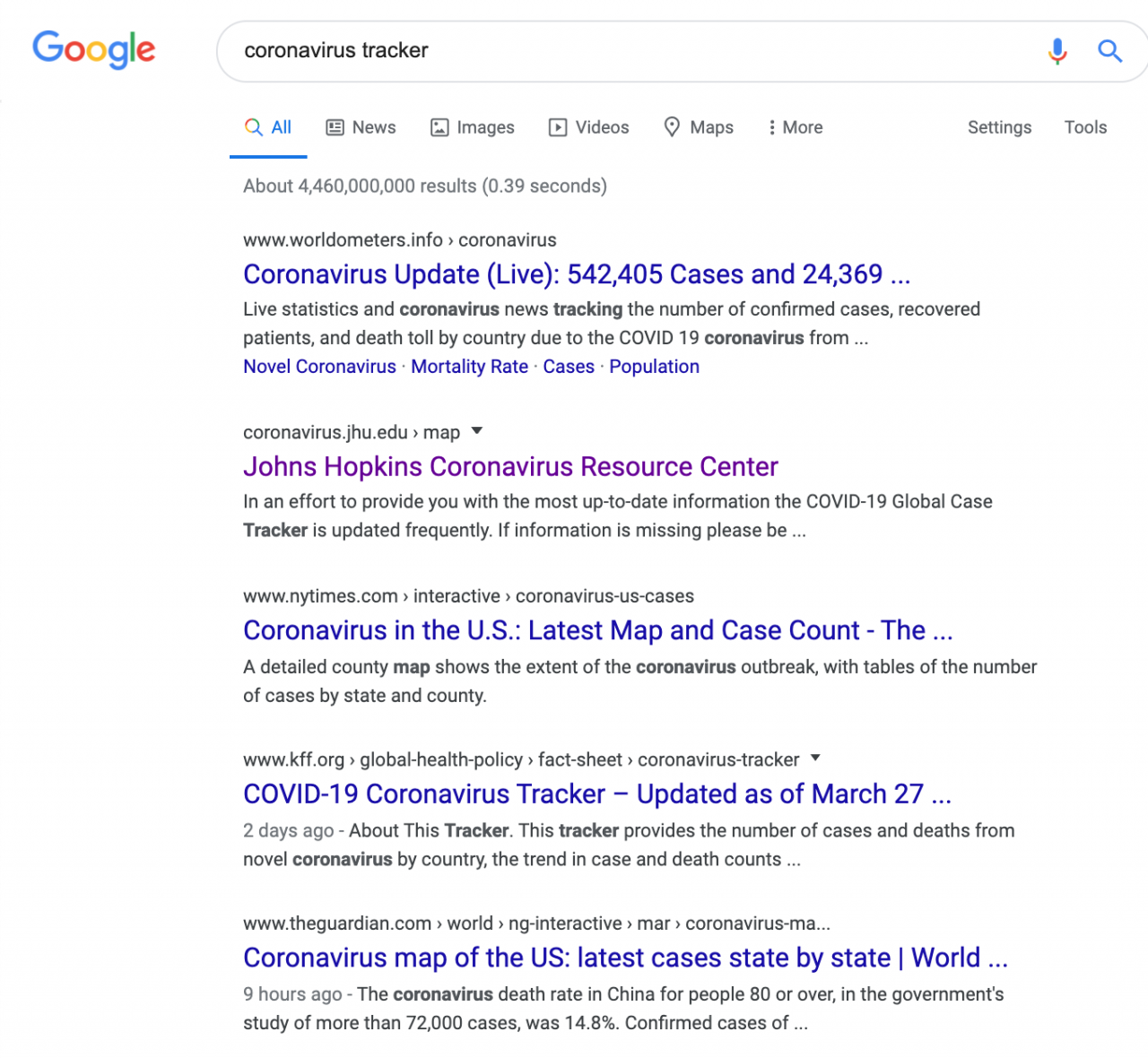Filed Under SEO
How to Appropriately Use SEO for Coronavirus COVID-19
SEO, in a big way, can partly control the flow of information on search engines. This means SEO’ers bear part of the responsibility in facilitating relevant content in relation to keywords being searched.
But who cares about SEO, we are experiencing a pandemic… am I right?
That’s partly wrong.
The Novel Coronavirus COVID-19 is the number ONE searched topic on the internet right now. Rightfully so, people want to stay informed and know what’s happening.
According to SEMrush, on the day this article was published (March 26th, 2020), the term “coronavirus” has been searched 3 million-plus times a month. I’d say this number is even largely underestimated, I would guess this number actually lies somewhere in the 100 million-plus (for reasons being that tracking softwares will always use estimations in realtime and track retroactive data more accurately). All of this to say, a lot of people are looking for information on this new disease.

…But did you know Coronaviruses have previously existed for a long time?
Maybe by this point, this has become common knowledge for some of you, for others, that’s not the case.
The CDC explains that the “coronavirus” term designates a family of viruses that attack the respiratory system, in epidemiological terms (those who study the distribution of diseases in the public health realm).
The CDC goes on to explain,
“A novel coronavirus is a new coronavirus that has not been previously identified. The virus causing coronavirus disease 2019 (COVID-19), is not the same as the coronaviruses that commonly circulate among humans and cause mild illness, like the common cold. A diagnosis with coronavirus 229E, NL63, OC43, or HKU1 is not the same as a COVID-19 diagnosis. Patients with COVID-19 will be evaluated and cared for differently than patients with common coronavirus diagnosis.”
This leads to the main point of this article. “Coronavirus” is not synonymous with the term “Coronavirus COVID-19,” despite what the digital metrics tell us. This means, if you are an SEO’er (my personal term for those who practice SEO), or a publisher, it is important to include both of these terms in your content.
This is the case for 2 reasons:
- Accuracy
- Search engine visibility
Take for example, when you search “COVID-19 tracker” on Google, you’ll see that the number 1 result is Bing’s tracker. Notice how their header is an exact match keyword:

Compare that to this search made on Google: “coronavirus tracker.” You can see Bring’s tracker is nowhere to be found. In fact, you’ll see a mix of headlines that include “coronavirus” and “COVID-19” in the results on the first page. These are the results that are getting significantly more visibility than the results shown on the screenshot above.

The examples above show that an SEO’er or a publisher needs to include both “COVID-19” and “coronavirus” in their content if they want to rank anywhere near the first page of Google. As it currently stands, these terms are considered synonymous, therefore you may want to think about adding content on your article explaining the difference between the terms. For more guidance on navigating these rough waters with your digital marketing plan, learn more here.
Amidst these unprecedented times, digital marketing and SEO are becoming more and more relevant as a means to help facilitate a high demand for accurate information related to our circumstances. But it goes without saying, the true heroes during these times are the people on the front lines. The doctors, nurses, grocery store workers, and other service & healthcare workers alike are the ones who need our support the most. Just remember, it is incumbent on SEO’ers to publish as accurate information as possible for the people who need it the most.
